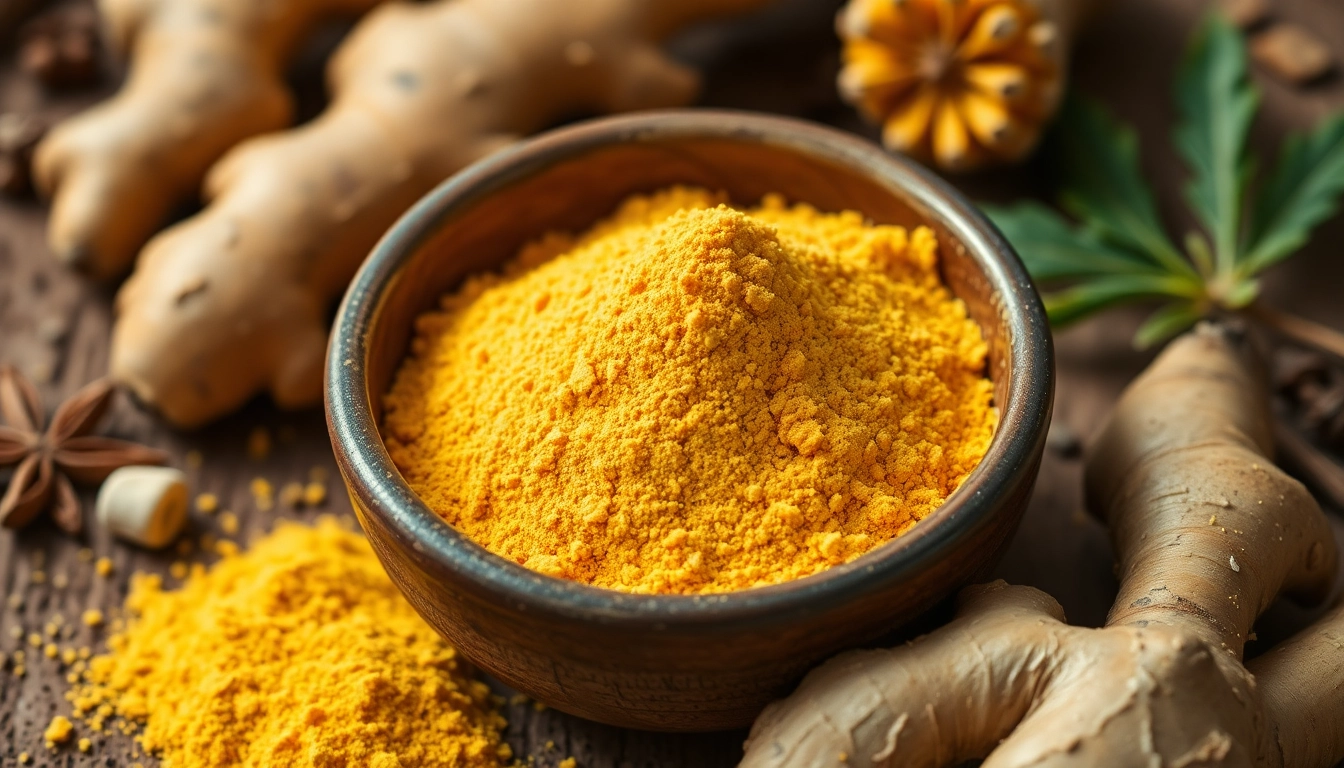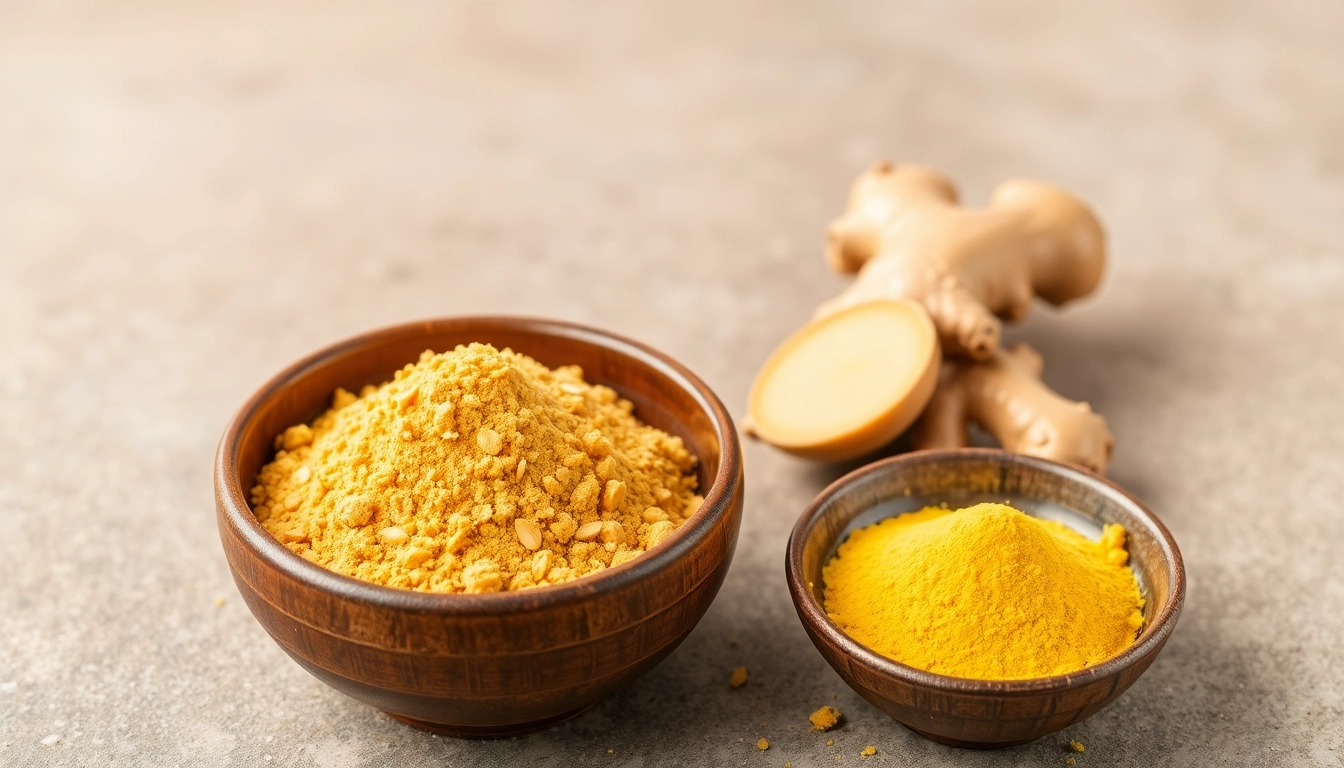Understanding Ginger Powder and Its Benefits
Ginger powder, known scientifically as Ginger Powder, is a prized spice derived from dried, finely ground ginger rhizomes. This versatile condiment has been a staple in culinary traditions across the globe, especially in Asian cuisines, due to its distinctive flavor and medicinal properties. High-quality ginger powder is characterized by its fresh aroma, bright color, and purity, which are indicators of meticulous processing and sourcing. Reputable manufacturers like Spice Nest uphold stringent quality standards, ensuring their ginger powder is free from adulterants and retains maximum potency. Certified by various international food safety agencies, premium ginger powder not only enhances flavor but also contributes health benefits that have been recognized for centuries.
The health benefits of ginger powder extend beyond its culinary appeal. Rich in bioactive compounds like gingerol, it possesses anti-inflammatory, antioxidant, and digestive properties. Studies have shown that regular consumption can help alleviate nausea, reduce muscle pain, improve digestion, and even bolster immunity. For instance, a 2020 research publication in the Journal of Nutritional Biochemistry reported that gingerol exerts significant anti-inflammatory effects, making ginger powder an excellent natural remedy for conditions like arthritis and inflammatory bowel diseases. As the demand for natural health products surges, ginger powder’s role as a superfood continues to grow, supported by its diverse applications in health supplements and functional foods.
Choosing the Right Ginger Powder for Your Needs
Factors to Consider: Purity, Freshness, and Certification
When selecting ginger powder, it is crucial to prioritize purity, freshness, and certification. Authentic ginger powder should be free from artificial additives, colorants, and preservatives. Certifications such as ISO, HACCP, and organic labels serve as proof of compliance with international quality standards, ensuring safety and consistency. Freshness is indicated by a vibrant aroma and bright color; old or poorly stored ginger powder may develop a stale smell or discoloration. Packaging plays a vital role in preserving quality—airtight, food-grade packets sealed properly help maintain the spice’s natural properties for extended periods. Reputed brands like Spice Nest emphasize these aspects, offering products that meet rigorous quality benchmarks.
Comparing Different Brands and Suppliers
In the competitive spice market, discerning between brands requires attention to sourcing, processing, and reputation. Leading suppliers employ hygienic manufacturing practices, source raw ginger from reliable farms, and utilize modern dehydration and grinding technologies that retain natural flavors. Comparing certifications, customer reviews, and product samples aids in making an informed decision. Moreover, suppliers that participate in global food exhibitions such as Biofach often showcase their commitment to quality and innovation. Spice Nest’s consistent presence at major international food events exemplifies their dedication to providing authentic, certified ginger powder that stands out amidst competitors.
How to Identify Authentic High-Quality Ginger Powder
Authentic ginger powder can be distinguished by sensory and packaging cues. A fresh, spicy aroma and a bright, golden hue indicate high quality. Labels should include clear information on origin, certifications, and batch numbers. Genuine products have minimal moisture content, which prevents mold growth and extends shelf life. Additionally, conducting simple tests—such as checking for off-putting odors or clumping—can help identify substandard products. For businesses and consumers alike, sourcing from trusted manufacturers like Spice Nest, which adhere to international quality standards and transparent supply chains, guarantees the procurement of top-tier ginger powder.
Expert Tips for Incorporating Ginger Powder into Recipes
Cooking Techniques and Dosage Recommendations
Proper incorporation of ginger powder enhances flavor without overpowering dishes. Typically, a teaspoon of ginger powder suffices for most recipes, but adjustments depend on the dish and desired intensity. It is best to add ginger powder during cooking to allow flavors to meld and develop fully. For sauces, soups, or curries, sprinkle ginger early in the cooking process, while adding it towards the end can preserve its pungency, ideal for garnishes or quick sautés.
Combining Ginger Powder with Other Spices for Full Flavour
Ginger pairs exceptionally well with spices like garlic, cumin, coriander, turmeric, and chili, creating complex, aromatic profiles. For example, a traditional Indian garam masala blend integrates ginger with cinnamon and cloves for a warm, spicy flavor. Experimenting with combinations can produce signature dishes tailored to specific cuisines or personal preferences. A popular approach involves creating spice mixes for marinades or dry rubs, where ginger’s heat balances sweetness or acidity.
Creating Signature Dishes Using Authentic Ginger Powder
Innovative chefs leverage ginger powder to craft distinctive dishes—ranging from spicy Asian stir-fries to comforting Western-style baked goods. For instance, adding ginger powder to banana bread imparts a warm depth, while blending it into salad dressings enhances tanginess. Incorporating ginger into beverages like teas and smoothies boosts health benefits and flavor complexity. The key lies in understanding how much to add and when, to showcase ginger’s layered aromatic qualities and health-promoting properties effectively.
Storage, Shelf Life, and Preservation of Ginger Powder
Proper Storage Methods to Maintain Freshness
To preserve ginger powder’s flavor and potency, store it in an airtight container away from heat, light, and moisture. Use opaque, dry, food-grade jars or pouches that prevent exposure to environmental factors. Keep the container in a cool, dark pantry or cupboard, avoiding places near the stove or heat sources. Regularly check packaging for any signs of moisture ingress or damage. Proper storage not only maintains freshness but also prevents pest infestation and spoilage.
Signs of Spoiled Ginger Powder and How to Avoid Them
Spoiled ginger powder often exhibits a dull or rancid odor, changes in color, clumping due to moisture, or the presence of mold. Discard any product that shows these signs to prevent health risks. To avoid spoilage, always use clean, dry utensils when handling the powder, reseal packaging tightly after use, and avoid prolonged exposure to air.
Optimal Shelf Life for Different Packaging Types
When stored properly, large quantities of ginger powder in sealed containers can last up to 12-24 months, whereas smaller retail packs, if kept unopened, typically maintain quality for 6-12 months. Always refer to the expiration or best-before date printed on the packaging. Using vacuum-sealed packs or nitrogen-flushed packaging further extends shelf life, ensuring maximum freshness for commercial buyers and home consumers alike.
Market Trends and Innovations in Ginger Powder Production
Emerging Organic and Certified Variants
The organic food movement continues to influence ginger powder production, with increasing demand for organically certified products free from pesticides and chemical residues. Certification bodies such as USDA Organic and India Organic provide authenticity, reassuring consumers of the product’s purity. Spice Nest, as a leading manufacturer, offers certified organic ginger powder, aligning with growing consumer preferences for clean-label, sustainable products. Innovations include enhanced cultivation techniques, eco-friendly processing, and traceability systems that bolster confidence in the supply chain.
Technological Advances in Processing and Packaging
Modern processing methods—like low-temperature dehydration and cryogenic grinding—ensure ginger retains its volatile oils and pungency. Advanced packaging solutions, such as vacuum-sealed, nitrogen-flushed pouches, prevent oxidation and moisture ingress. These technologies extend shelf life, preserve flavor, and improve packaging aesthetics for global markets. Companies investing in such innovations position themselves to meet the stringent quality standards demanded by international customers.
Global Demand and Export Opportunities for Ginger Powder
The worldwide health and wellness trend has spurred a surge in demand for natural spices like ginger powder. Countries in North America, Europe, and Asia are key markets, appreciating its culinary and medicinal uses. India’s expertise as a major exporter, exemplified by Spice Nest’s participation in international trade shows and exhibitions, further accelerates market expansion. Strategic focus on certifications, sustainable sourcing, and innovative packaging will unlock new opportunities for exporters looking to capitalize on this expanding global appetite.

